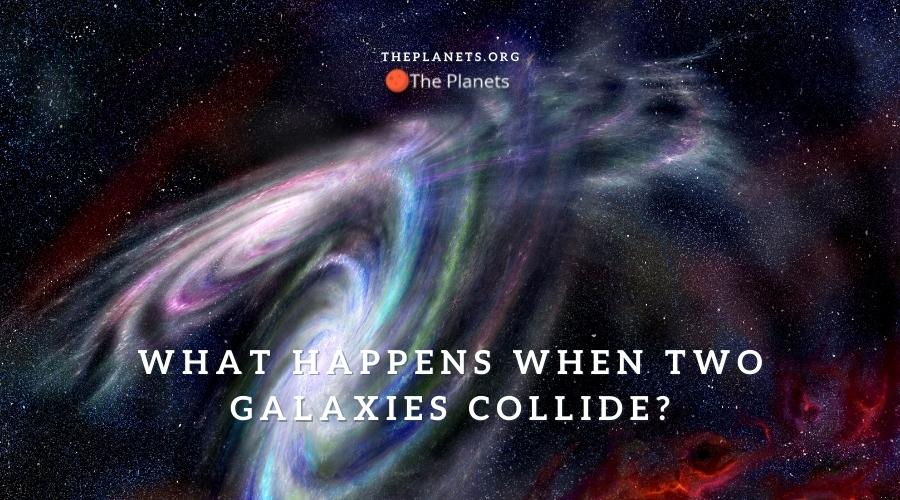
The Milky Way is the galaxy that’s home to our solar system. It’s part of something called the Local Group, which also includes the Andromeda Galaxy. In this article, we’ll look at what happens when two galaxies collide and what scientists believe might occur if the Andromeda and Milky Way collided.
No Star Collisions
You might think that a collision between two galaxies would cause stars to collide against each other. This does happen because stars aren’t physical objects. They’re made of dust particles and certain gases. If two stars struck each other during a collision, the impact would cause both stars to break apart. The gases would dissolve at the same time that the gases evaporated. As the different gases interacted, it would create large shockwaves that spread across the universe. Those waves could cause new stars to form from the dust and gases left behind.
Elliptical Galaxy
One thing that could happen when two galaxies collide is the formation of an elliptical galaxy. You probably think of a galaxy in a linear term because of the books you read in science class. Those books make it seem like each planet follows a line across the universe. The universe and solar system have a more complicated design though. In the case of an elliptical galaxy, the planets and stars create a large section of space with an oblong shape. Depending on the amount of gas and dust that was expelled, that new galaxy could rival the size of the Milky Way.
Black Holes
Astronomers believe that what happens when two galaxies collide would likely cause one or more black holes. A black hole is essentially a dead spot in space. Anything that enters a black hole will not come back out. Black holes would both absorb some of the light in space and also attract planets and other objects. Though the odds of Earth finding its way to a black hole is slim, other planets in our system, as well as satellites and other objects, could enter a black hole and cause temperature and other changes on our planet.
Merger
Another thing that could happen due to a galaxy collision is a simple merger. This is something that happened in the past between large or giant galaxies and satellite galaxies. Think of it in the same way you would a car accident. If you were in a large SUV and sitting at a stoplight when someone in an economy car struck you from behind, you would probably suffer minimal damage and find that your SUV didn’t move an inch. When a satellite galaxy collides with a giant galaxy, the giant galaxy simply absorbs the impact and merges the smaller galaxy into its existing space.
Andromeda and Milky Way Collision
Edwin Hubble found evidence of something he called Hubble’s Law back in the 1920s. Hubble’s Law states that looking at the light on a spectrum as it shifts can determine both the velocity and distance of a galaxy. Astronomers used this law to determine that most galaxies were moving away from the Milky Way except for the Andromeda Galaxy, which keeps getting closer to our solar system. They used Hubble’s Law and other physics rules to determine that Andromeda moves at a rate of nearly 70 miles per second.
When Will a Collision Happen?
If you worry about experiencing a collision between these two galaxies in the future, you can stop worrying. Most estimate that a collision between the Andromeda and Milky Way galaxies will happen at least five billion years in the future. The effects of a collision of this size would take even longer to set in and may not happen for another few billion years after the initial incident. This merger would lead to the two galaxies working together. When two galaxies collide, the effects that occur can depend on the size of the galaxies and other factors.